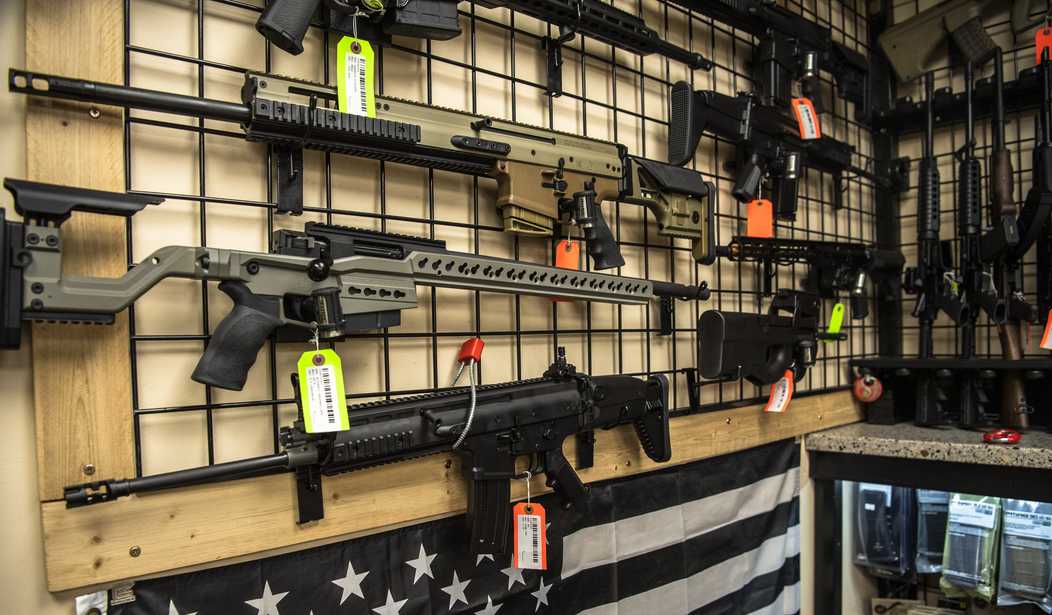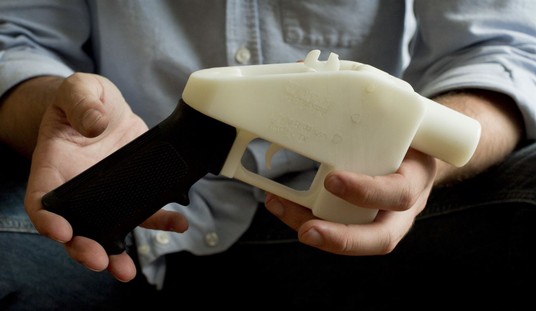On Monday, a three-judge panel on the Seventh Circuit Court of Appeals heard oral arguments in the lawsuits challenging the gun and magazine bans imposed by the state of Illinois. The plaintiffs challenging the laws prevailed in the lower court, with U.S. District Judge Stephen McGlynn declaring both the ban on AR-15s and other semi-automatic firearms and the prohibition on detachable magazines that can hold more than ten rounds of ammunition a violation of the right to keep and bear arms.
McGlynn had previously granted an injunction agains the enforcement of the law, but the Seventh Circuit overruled him, with Judge Frank Easterbrook writing that 'the laws have enough support to remain in place pending the final resolution of plaintiffs’ suit." On Monday, Easterbrook again expressed his skepticism of McGlynn's conclusion that these commonly-owned arms are protected by the Second Amendment, though the judge did get some backing from at least one other member of the panel.
Judge Michael Brennan praised McGlynn’s opinion’s thoroughness
“I think this is the first time we've had a full trial record of any federal appellate court in the country, set a full trial record,” Brennan said. “Isn't that an uphill battle for the state to overcome those findings?”
Brennan sided with plaintiffs when the case was in front of the appeals court in 2023.
Judge Frank Easterbrook, who joined now retired Judge Diane Wood in siding with the state on preliminary grounds last year, said the district court didn’t address the rate of fire and capacity of magazines as the appeals court had directed.
“I really worry about the blah blah blah, etc. etc. given that the district court didn't make findings on several of the things we told it, it needed to,” Easterbrook said Monday.
Easterbrook might not like McGlynn's findings, but he did discuss both the rate of fire and magazine capacity in his lengthy opinion. On the rate of fire of the semi-automatic firearms in question (which the Seventh Circuit declared was similar to full-auto fire), McGlynn wrote:
...it stands to reason that an untrained civilian shooter would have even less control over a machinegun (or, for that matter, flamethrower or grenade). Such weapons would maim or kill an attacker, but the operator would not be able to control the weapon’s discharge in any reasonable manner. This quality—the inability of the shooter to control the weapon—is a workable and reasonable definition of “dangerous” in line with the Supreme Court’s intentions. Put another way, the “dangerousness” of a weapon is linked to the operator’s control of fire, not to the rate of fire. Thus, machineguns would not necessarily be banned because of the rapidity with which they deliver rounds downrange, but because the average civilian operator(and, as it turns out, the military operator, as well) cannot control the weapon when fully automatic in a way that would ensure that shots are reasonably aimed.
... Therefore, this Court defines dangerous as: bearable arms that a typical operator cannot reasonably control to neutralize discrete, identified aggressors. Once more, it is the lack of the ability to discriminately control the arm and its discharged projectiles that makes it dangerous, not its rate of fire.
McGlynn wrote so extensively about magazine capacity that I can't begin to quote all of the relevant portions of his opinion, but this is the most important statement:
Regarding thirty-round large-capacity magazines and the various attachments (e.g., pistol grips, flash suppressors, and the like) at issue here, this Court holds that these devices are also in common use and have legitimate self-defense purposes. For magazines, every round matters in a self-defense scenario—reloading takes away significant time during which the defender can be injured or wounded. Moreover, unlike in military combat where soldiers are equipped with pockets, vests, and belts to carry spare ammunition, a defender will only have what he or she can carry. Thus, in a critical self-defense scenario, more rounds equals a higher chance of survival.
Again, Easterbrook might not appreciate where McGlynn landed on the question, but he did make his findings based on what the panel told him.
Judge Brennan appears to have been far more receptive to the plaintiffs arguments.
The state, working to defend the law, said there are unprecedented societal concerns of mass shootings. Brennan questioned that.
“If it's a mass shooting circumstance, I'm not sure. We can't be myopic in our history with regard to when these, these, mass shootings occurred,” Brennan said. “It's not just recent. It's going back.”
And not just "mass shootings", but mass violence. The history of the United States in the 19th century is replete with examples of large scale violence, from the mob attacks on Mormons in Missouri and Illinois in the 1830s to Bloody Kansas in the late 1850s to the pogroms against freed slaves in the south after the Civil War. None of those incidents led to laws limiting the firing capacity of firearms or their rate of fire, so how can the "assault weapon" and "large capacity" magazine bans that have only been around for less than 40 years be part of a longstanding national tradition of gun ownership?
In addition to the plaintiffs and defendants, Assistant U.S. Attorney General Harmeet Dhillon also weighed in, and the DOJ's official position is that the Protect Illinois Communities Act violates our right to keep and bear arms.
“The United States has a strong interest in ensuring that the Second Amendment is not relegated to a second class right, and that all the law-abiding citizens of the circuit remain able to enjoy the full exercise of their Second Amendment rights,” Dhillon said.
If I had to hazard a guess about the outcome of the oral arguments, I'd say we're likely to get another 2-1 ruling in favor of the state of Illinois, no matter how much of McGlynn's opinion the majority has to ignore to suit their purposes. I hope I'm wrong, but Judge Amy St Eve, a Trump-appointed judge who is the third member of the panel, recently voted to uphold Illinois' ban on lawful concealed carry on public transportation, so I'm not particularly optimistic that she'll view the state's ban on so-called assault weapons and "large capacity" magazines any differently.
No matter what the panel concludes, this case will be appealed to the Supreme Court by the losing side no matter the outcome. I'm rooting for the plaintiffs, but I'm also keeping my fingers crossed for a speedy decision that will get this case to SCOTUS as soon as possible.
Editor's Note: Radical judges are doing everything they can to erase the Second Amendment from the Constitution.
Help us hold these judges accountable for their unconstitutional rulings. Join Bearing Arms VIP and use promo code FIGHT to get 60% off your membership.









Join the conversation as a VIP Member